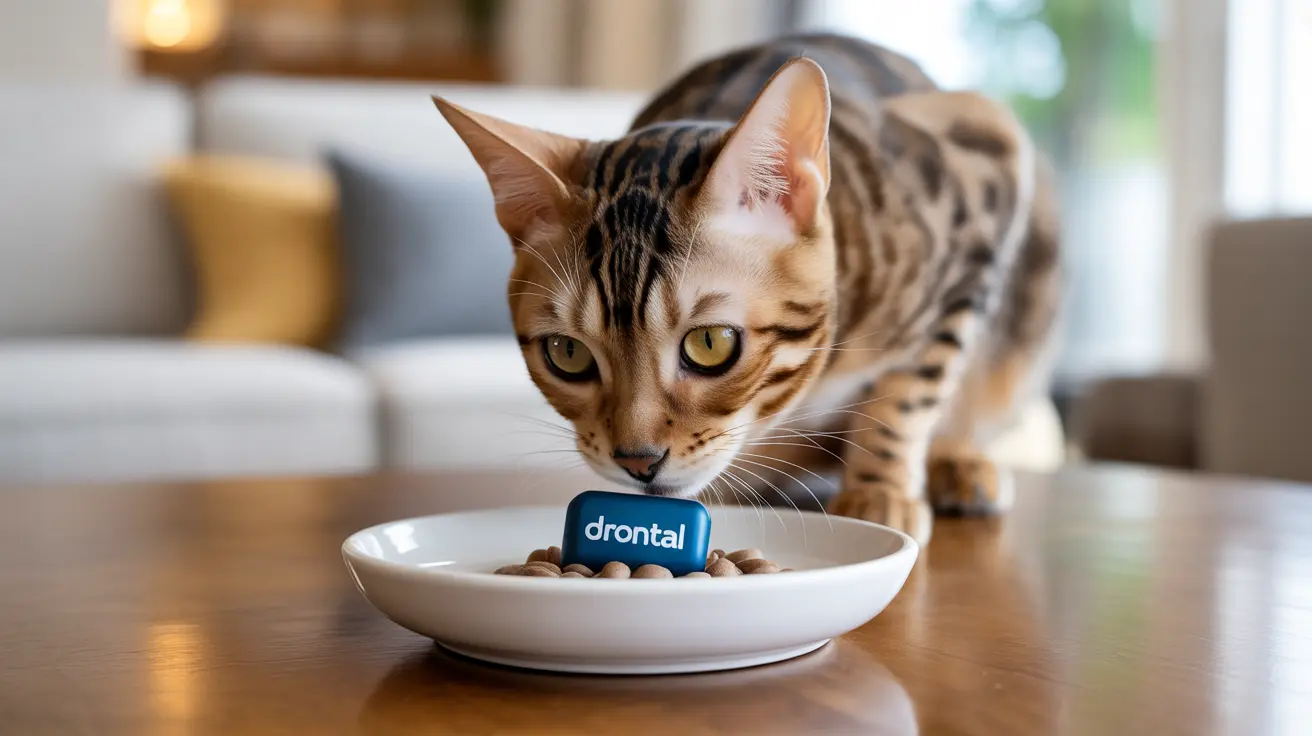If you're a cat owner concerned about intestinal parasites, Drontal for cats is one of the most trusted and effective deworming medications available. This comprehensive guide will walk you through everything you need to know about using Drontal to keep your feline friend healthy and worm-free.
As a broad-spectrum deworming treatment, Drontal is specifically formulated to combat multiple types of intestinal parasites that commonly affect cats. Let's explore its uses, proper dosing, and important safety considerations.
Understanding Drontal's Role in Cat Health
Drontal combines two powerful active ingredients - praziquantel and pyrantel pamoate - to effectively eliminate various intestinal worms, including roundworms, hookworms, and tapeworms. This dual-action formula makes it a go-to choice for veterinarians and pet owners alike.
Proper Dosing Guidelines
Accurate dosing is crucial for Drontal's effectiveness and your cat's safety. The dosage is determined by your cat's weight:
- 1.5-1.9 lbs: 1/4 tablet
- 2-3 lbs: 1/2 tablet
- 4-8 lbs: 1 tablet
- 9-12 lbs: 1 1/2 tablets
- 13-16 lbs: 2 tablets
Always weigh your cat before administration to ensure proper dosing. The medication can be given with or without food, though some cats may accept it more readily with food.
Treatment Schedule and Administration
For optimal parasite protection, follow these general guidelines:
- Kittens: Treat at 4, 6, 8, and 12 weeks of age
- Adult cats: Treat every three months
- Cats with high exposure risk: Follow veterinarian recommendations for more frequent treatment
Safety Considerations and Side Effects
While Drontal is generally safe for cats, being aware of potential side effects is important. Common reactions may include:
- Mild digestive upset
- Temporary decreased appetite
- Drooling
- Lethargy
These effects typically resolve within 48 hours. Contact your veterinarian if symptoms persist or seem severe.
Special Considerations for Different Cat Groups
Different cats have different deworming needs:
- Kittens must be at least 4 weeks old and weigh 1.5 lbs or more
- Indoor-outdoor cats may need more frequent treatment
- Multi-cat households should coordinate treatment schedules
- Pregnant or nursing cats require special consideration
Frequently Asked Questions
How much Drontal should I give my cat based on its weight?
Dosage is strictly weight-based, ranging from 1/4 tablet for cats 1.5-1.9 lbs to 2 tablets for cats 13-16 lbs. Always weigh your cat immediately before treatment and follow the dosing chart precisely.
Can Drontal for cats be used for kittens, and what is the recommended age and weight for treatment?
Drontal is safe for kittens 4 weeks and older, weighing at least 1.5 lbs. Never use it on younger or lighter kittens, as this could be dangerous.
What are the common side effects of Drontal in cats and what should I do if my cat experiences them?
Common side effects include mild digestive upset, decreased appetite, and lethargy. Most effects resolve within 48 hours. Contact your veterinarian if symptoms persist or become severe.
How often should I deworm my cat with Drontal for best protection against parasites?
Adult cats typically need treatment every three months. Kittens require more frequent treatment at 4, 6, 8, and 12 weeks of age. High-risk cats may need more frequent treatment as advised by a veterinarian.
Is Drontal safe for pregnant or nursing cats, and are there any special precautions to take?
The safety of Drontal in pregnant cats varies by region and formulation. Always consult your veterinarian before treating pregnant or nursing cats, as special protocols may be needed.
Conclusion
Drontal for cats remains one of the most effective and trusted deworming medications available. By following proper dosing guidelines and maintaining a regular treatment schedule, you can help ensure your cat stays healthy and parasite-free. Always consult with your veterinarian for personalized advice about your cat's deworming needs.






